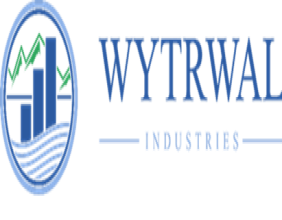Highlights:
- Pharma Market Shock: Appointment of vaccine critic Robert F Kennedy Jr as US health secretary spooked global pharmaceutical and biotech stocks, triggering a sharp sell-off.
- Vaccine Makers Hit Hard: Shares in Moderna, BioNTech, Pfizer, and European giants like GSK, AstraZeneca, and Sanofi faced steep declines.
- Uncertain Outlook: Analysts point to significant uncertainty for the sector, with potential impacts on vaccine policy and regulation.
Pharmaceutical and biotech stocks across the globe tumbled on Friday following the announcement of Robert F Kennedy Jr as the next head of the US Department of Health and Human Services (HHS). The decision by president-elect Donald Trump has stirred unease among investors, given Kennedy’s outspoken stance against vaccines and his history of promoting unproven health theories.
Market Reaction: Vaccine Makers Suffer Heavy Losses
The immediate fallout was felt on the stock market, particularly among companies involved in vaccine production. US-listed Moderna and BioNTech saw significant drops, with Moderna falling an additional 1% in pre-market trading on Friday after a steep 6% decline on Thursday. BioNTech’s shares were similarly impacted, sliding 2% following a 7% drop in the previous session.
Pfizer, another major player in the vaccine market, also faced pressure, closing down 3% on Thursday and shedding another 1% in early trading on Friday.
In Europe, pharmaceutical heavyweights were not spared. Shares in UK-based GSK dipped by 3%, while AstraZeneca was off just over 2%. Switzerland’s Novartis and France’s Sanofi experienced declines of 1% and 3%, respectively.
One of the hardest-hit stocks was Denmark’s Bavarian Nordic, known for its smallpox and mpox vaccines, which plummeted by 16%. The company’s CEO, Paul Chaplin, acknowledged the market reaction, noting concerns about Kennedy’s impact on vaccine policies, but expressed hope that the incoming administration would continue to support biodefence initiatives.
Concerns Over Regulatory Shifts
Kennedy’s appointment has raised alarms throughout the pharmaceutical industry, as his role as health secretary will grant him substantial authority over public health policy, drug approvals, and vaccine regulations. A vocal critic of the pharmaceutical sector, Kennedy has falsely linked vaccines to autism and has campaigned against practices like water fluoridation.
Russ Mould, investment director at AJ Bell, commented on the market turmoil: “The announcement of vaccine-sceptic Kennedy as health secretary for the incoming Trump administration has spooked investors. The impact on the sector is hard to judge fully at this stage, but at the very least it will cause a great deal of uncertainty.”
Potential Policy Changes Under Kennedy
Kennedy’s controversial views have long made him a polarising figure, especially among public health officials and scientific communities. His appointment signals a potential shift in US health policy, raising fears of reduced support for vaccine programmes and heightened regulatory scrutiny for pharmaceutical companies.
Despite these concerns, there remains hope that the new administration will maintain or even increase funding for biodefence projects, which could provide a cushion for certain segments of the sector. Bavarian Nordic’s Chaplin noted that while Kennedy’s stance may fuel vaccine scepticism, there is still an expectation for increased investment in health security under the Trump administration.
Broader Market Impact
The ripple effects of Kennedy’s appointment have extended beyond the US, impacting global pharmaceutical and biotech stocks. European and Asian markets mirrored the decline seen in American companies, as investors brace for potential disruptions to the sector.
While the long-term implications of this appointment remain unclear, the initial market response underscores the widespread unease among industry participants. Analysts suggest that uncertainty will persist until more clarity emerges regarding the new administration’s policy direction, particularly in relation to vaccines and broader health regulation.
For now, the pharmaceutical sector is left navigating a turbulent landscape, as the industry grapples with the potential fallout from a vaccine-sceptic health secretary and prepares for possible shifts in US public health strategy.





